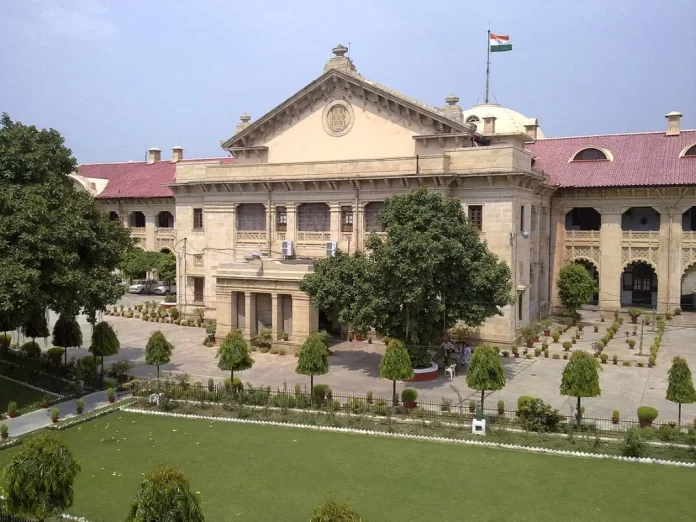The Allahabad High Court has dismissed the bail application of Suraj Bhan, accused of murdering his wife.
A Single Bench of Justice Ajay Bhanot passed this order while hearing a Criminal Misc Bail Application filed by Suraj Bhan.
By means of the bail application the applicant has prayed to be enlarged on bail in Case at Police Station Raksa District Jhansi under Section 302 IPC. The applicant has been in jail since 25.01.2023.
The bail application of the applicant was rejected by the trial court on 15.06.2023.
The applicant is the husband of the deceased. The applicant has been nominated as the principal offender who murdered his wife. One eye witness of last seen saw the deceased and the applicant in an altercation in the fields at a time proximate to her death. The body was recovered from the aforesaid fields. The offence is grave. There is likelihood that the applicant had committed the offence. At this stage, no case for bail is made out, the Court observed.
Without going into the merits of the case, the Court dismissed the bail application.
The Court directed the trial court to conclude the trial within a period of one year from the date of receipt of a certified copy of the order. The trial court shall proceed with the hearing on a day to day basis to ensure that the above stipulated timeline of one year is strictly adhered to. All witnesses and counsels are directed to cooperate with the trial proceedings.
The Court said that,
The trial court has also to be conscious of the rights of the accused persons and is under obligation of law to ensure that all expeditious, necessary and coercive measures as per law are adopted to ensure the presence of witnesses. Counsels or parties who delay or impede the proceedings should not only be discouraged from doing so but in appropriate cases exemplary costs should also be imposed on such parties/ counsel.
The trial court shall issue summons by regular process as per Section 62 Cr.P.C and also by registered post as contemplated under Section 69 Cr.P.C to expedite the trial.
The trial court shall promptly take out all strict coercive measures against all the witnesses in accordance with law who fail to appear in the trial proceeding. Counsels or parties who delay or impede the proceedings should not only be discouraged from doing so but in appropriate cases exemplary costs should also be imposed on such parties/ counsel.
The police authorities shall ensure that warrants or any coercive measures as per law taken out by the trial court to ensure that the attendance of the witnesses are promptly executed.
“The Senior Superintendent of Police, Jhansi shall file an affidavit before the trial court on the date fixed regarding the status of execution of the warrants/service of summons taken out by the trial court.
In case there is a failure on part of the police authorities to execute the warrants or other coercive measures, the Senior Superintendent of Police, Jhansi shall state the reasons for the same in the said affidavit and also show the steps taken to execute the warrants. The Senior Superintendent of Police, Jhansi shall simultaneously inform the Additional Director General of Police (ADG) Kanpur Zone, about the aforesaid failure of the police authorities in the first instance to execute the warrants and coercive measures issued by the trial court. If required, the Additional Director General of Police (ADG) Kanpur, may issue appropriate directions to ensure that the warrants issued are promptly executed by the trial court.
The delay in execution of warrants and consequent absence of witnesses is one of the principal causes of delays in criminal trials and has to be addressed effectively by all stakeholders.
It is also directed that in case any accused person does not cooperate in the trial or adopts dilatory tactics the trial court shall record a finding to that effect and cancel the bail without recourse to the Court”, the order reads.


